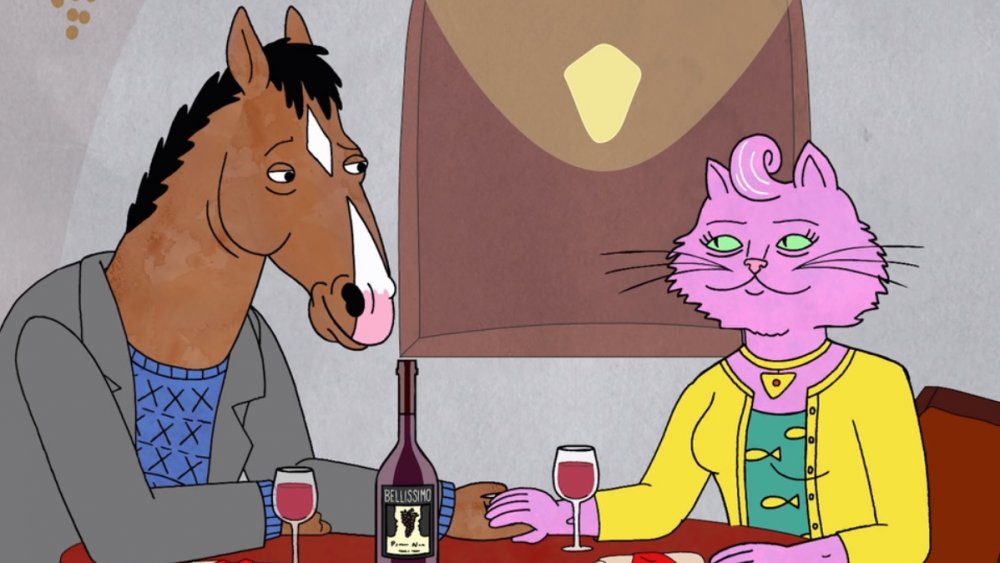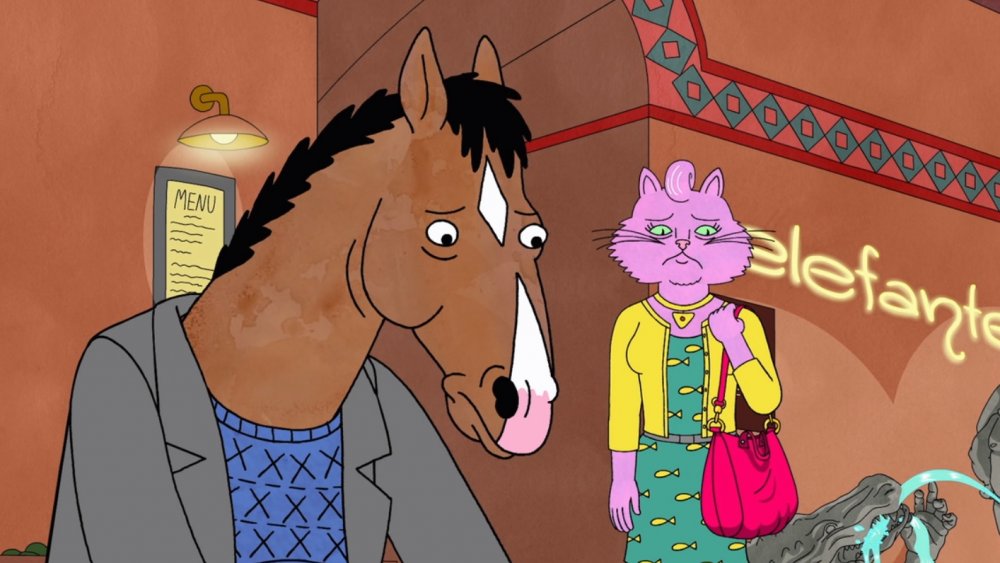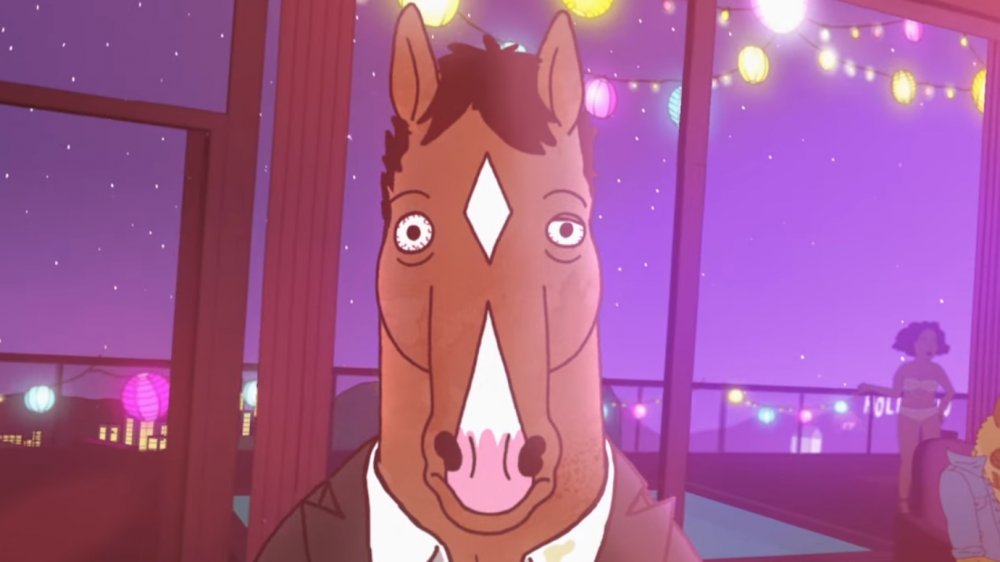The BoJack Horseman Episode That Changed Everything
BoJack Horseman, which has concluded on Netflix after six seasons, is one of the greatest animated series of all time... but that wasn't always apparent. Like most TV series, it took a little bit to find its footing — and while the front half of its first season was very good, it wasn't necessarily indicative of the show that BoJack would become.
In those early episodes, the series presented itself as a clever, somewhat raunchy animated satire, sending up Hollywood by way of a unique world in which humans and anthropomorphic animals — like the titular character, the washed-up, alcoholic former star of '90s sitcom Horsin' Around — lived and worked side by side. While many of BoJack's comedic hallmarks (such as densely layered sight gags, signage gone awry, and certain characters' throwaway usage of rhyme and alliteration) were present in these installments, they didn't exactly give the impression that the series aspired to be anything more than a well-written, smartly voiced adult comedy which happened to feature talking animals.
It's not often easy to put your finger on the specific point at which any given TV series finds its voice, but in the case of BoJack Horseman, its evolution from "very good" to "potentially great" indeed happened with one single episode. With the seventh episode of the first season, the show decisively turned a corner — and viewers began to realize that this funny, clever animated show just might have a lot more on its mind than it had previously let on.
"Say Anything" changed everything for BoJack Horseman
In "Say Anything," BoJack (Will Arnett) comes to the realization that his agent and sometime girlfriend, Princess Carolyn (Amy Sedaris) is the "best thing that ever happened" to him, directly after coming off a massive bender. As a brief montage hilariously illustrates, this isn't the first time that BoJack has reached this conclusion — but as her professional life is suddenly thrown into upheaval, Carolyn decides that perhaps she could take a chance on her former flame one last time.
This, of course, turns out to be a terrible decision. Upon receiving a call from his old friend and Horsin' Around creator Herb Kazazz, BoJack retreats into self-pity, telling Carolyn during their date that she had been right about him all along: "I don't love you. You don't love me," he says. "We're just two lonely people trying to hate ourselves a little less... maybe that's all we ever were."
Determined not to let BoJack drag her down, Carolyn spends the entire next day landing him a plum role in an upcoming rom-com. But when she calls BoJack to tell him the news, his visit with Herb — which we won't get the brutal details of until the following episode — has utterly destroyed him. "It doesn't matter. Nothing matters," he tells her — and as Carolyn hangs up, her ever-present smartphone wishes her a happy birthday, and helpfully reminds her that she's 40.
The episode has plenty of moments of signature BoJack humor: Guten Bourbon, the "urban German bourbon," Carolyn's nemesis Vanessa Gekko being a human, and an inspired sight gag featuring an armadillo. But it ends on a seriously bleak note, as Carolyn wonders just what the hell her life is about — and BoJack seems to have given up on his.
BoJack Horseman carved out a unique legacy among animated series
"Say Anything" served as a sort of acclimation to the territory BoJack would eventually tread, and the series' innovative humor and endearing-in-spite-of-himself protagonist made sure that viewers wouldn't let go of the series' hand as it slowly but surely led them into some insanely dark territory. The series has been called the most accurate portrayal of depression ever to be depicted on television, and BoJack's slow, painful march from complete self-centered obliviousness to humility and a measure of redemption is one of the most thoughtfully crafted character arcs the medium has ever presented.
It's worth pointing out that at several points during the series' run, any viewer could be forgiven for feeling that BoJack was too far gone to ever be sympathetic again; that the redemption he was making tentative feints toward from those very early episodes would be forever beyond reach, and that BoJack Horseman would therefore serve as nothing more than an improbably hilarious record of the inevitable, complete downfall of one of the biggest cads to ever grace the small screen.
Amazingly, though, this turned out not to be the case — and as such, BoJack's legacy happens to be one that holds a mirror up to the seemingly endless cycles of depression in a most profound way. This is because, as dark as things got, BoJack never lost hope — and BoJack never lost hope in him.
Back in the '90s, he was in a very famous TV show, and so very many years later — years filled with untold amounts of heartbreak and tragedy — he ended up in a pretty good place. Self-improvement gets easier, BoJack assured us, but you've gotta do it every day — that's the hard part.


